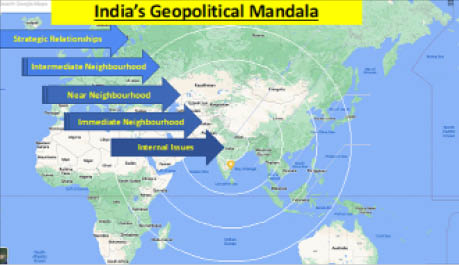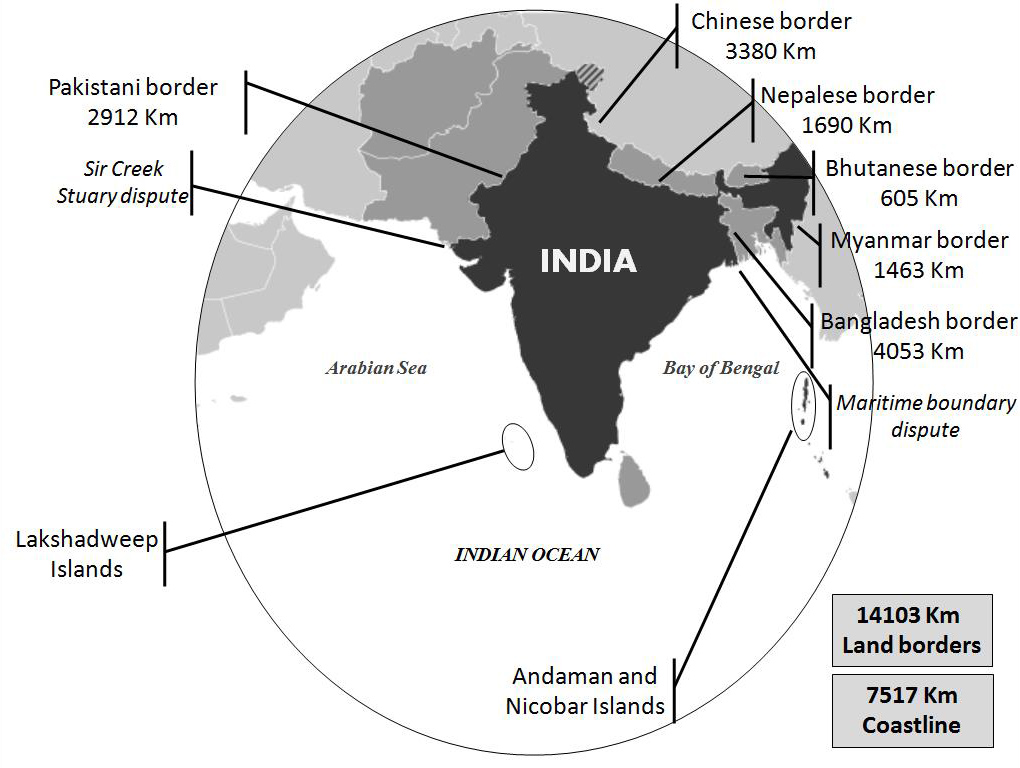Introduction:
India, the world's largest democracy and a rapidly growing economy, holds significant geopolitical importance in the global arena. Its strategic location, growing influence, and diverse capabilities make it a key player in regional and international affairs. In this blog post, we will explore the geopolitical importance of India and its impact on the global landscape.
Geographical Location:
- India's strategic position at the crossroads of South Asia, Central Asia, and the Indian Ocean region.
- Proximity to major sea lanes, including the Strait of Malacca and the Persian Gulf, vital for global trade.
- Bordering countries with diverse geopolitical interests, such as China and Pakistan.
Economic Powerhouse:
- India's emergence as one of the world's fastest-growing economies.
- A large domestic market and a hub for foreign investment.
- Expanding influence in sectors like information technology, pharmaceuticals, and renewable energy.
Regional Stability:
- India's role in maintaining stability in South Asia and the Indian Ocean region.
- Challenges and opportunities in managing relationships with neighboring countries.
- Contribution to peacekeeping efforts and regional cooperation initiatives.
Nuclear Power:
- India's status as a nuclear-armed nation and its influence on regional security dynamics.
- Nuclear deterrence and its impact on geopolitical calculations.
- Balancing domestic energy needs and non-proliferation commitments.
Geopolitical Alliances:
- India's engagement with major powers like the United States, Russia, and Japan.
- Participation in regional forums such as BRICS and the Indian Ocean Rim Association.
- Strengthening ties with countries in Southeast Asia, the Middle East, and Africa.
Maritime Interests:
- India's focus on enhancing naval capabilities and maritime security.
- Protecting sea lanes of communication and countering maritime threats.
- Role in initiatives like the Indo-Pacific concept and the Indian Ocean Naval Symposium.
Conclusion: India's geopolitical importance stems from its strategic location, economic prowess, regional stability efforts, nuclear capabilities, alliances, and maritime interests. As India continues to assert itself on the global stage, its actions and policies will shape not only the regional dynamics but also have implications for the broader international community. Understanding and analyzing India's geopolitical significance is crucial for comprehending the evolving world order and the interplay of power in the 21st century.
- Geopolitical significance of India
- Strategic location of India
- Economic powerhouse
- Regional stability
- Nuclear power
- Geopolitical alliances
- Maritime interests
- India's role in global affairs
- South Asia geopolitics
- Indian Ocean region
- India's relationships with neighboring countries
- India's foreign policy
- India's influence in international organizations
- Indo-Pacific concept
- Indian economy
Geopolitical significance of India,Strategic location of India,Economic powerhouse,Regional stability,Nuclear power,Geopolitical alliances,Maritime interests,India's role in global affairs,South Asia geopolitics,Indian Ocean region,India's relationships with neighboring countries,India's foreign policy,India's influence in international organizations,Indo-Pacific concept,Indian economy


Comments
Post a Comment